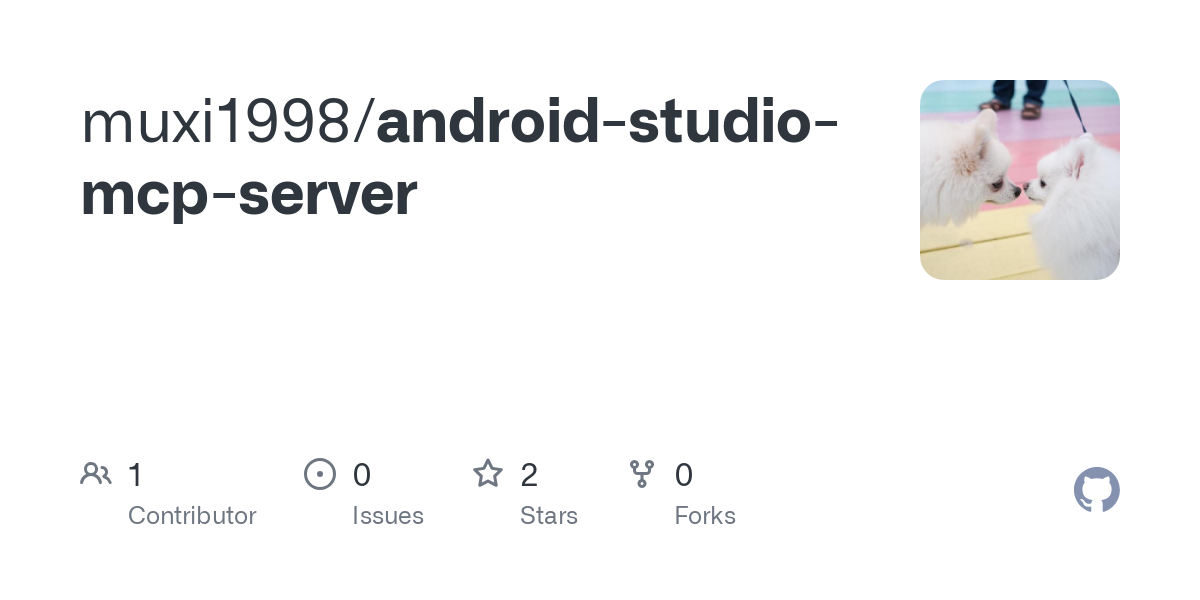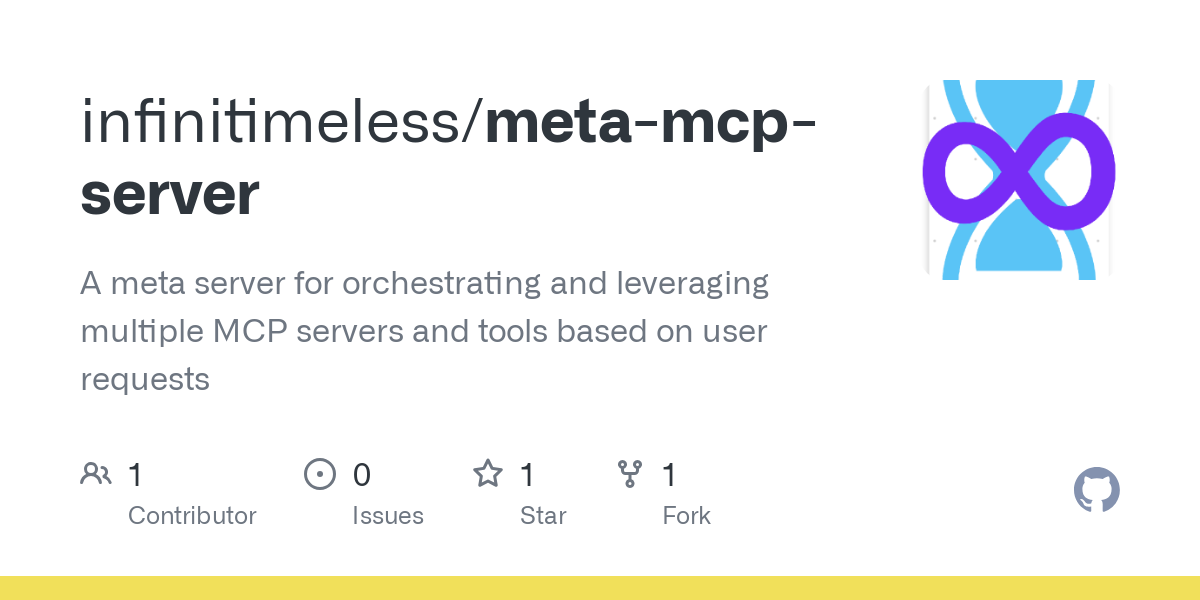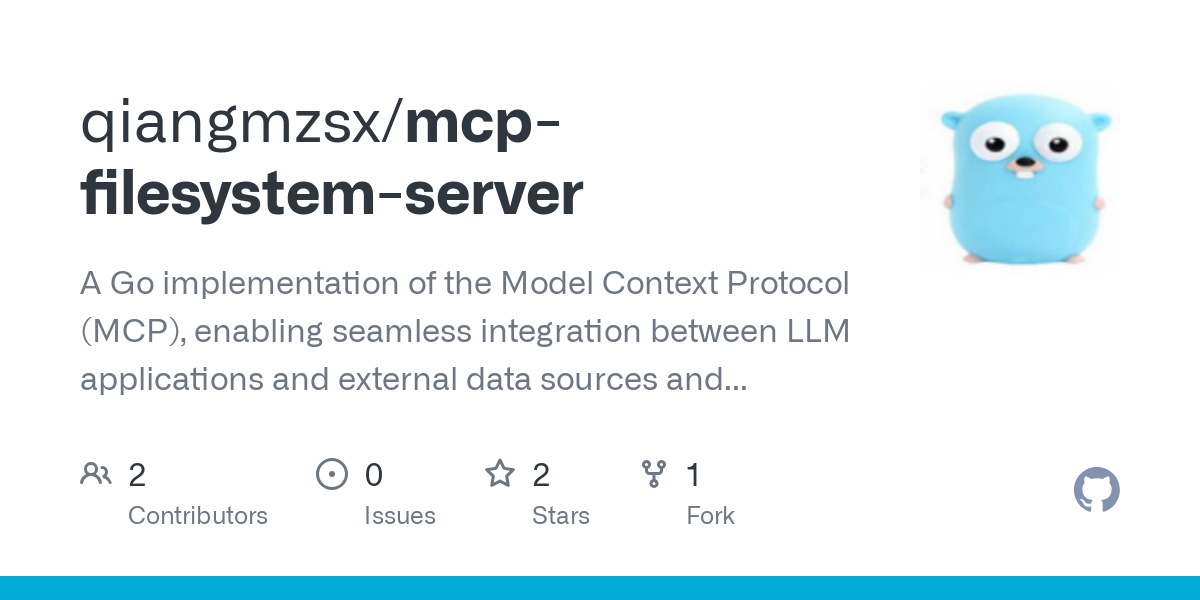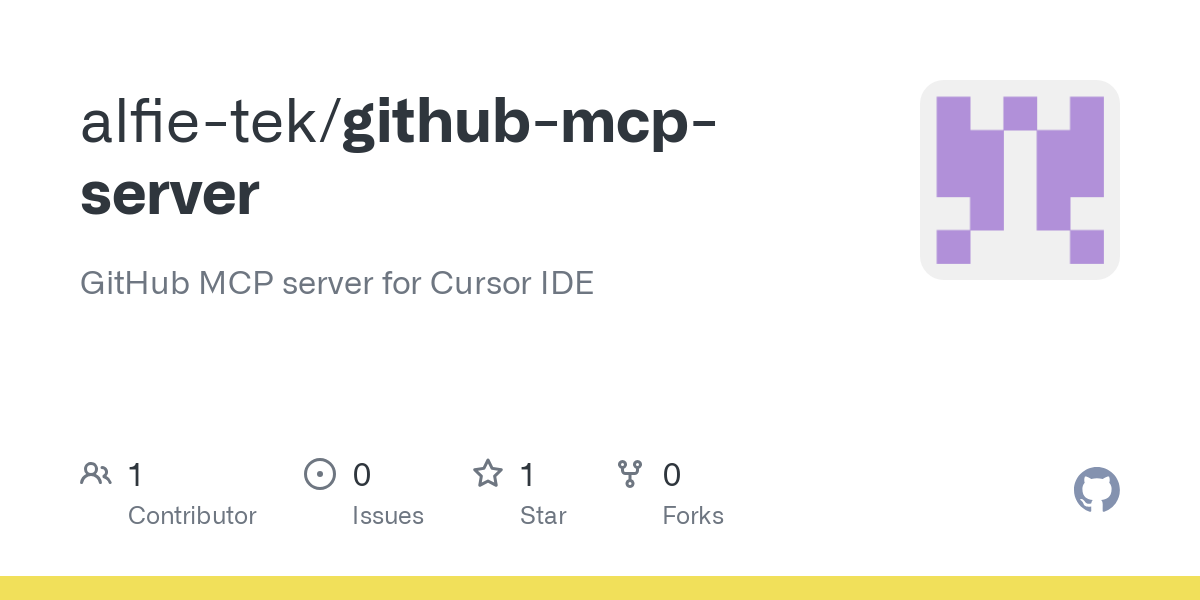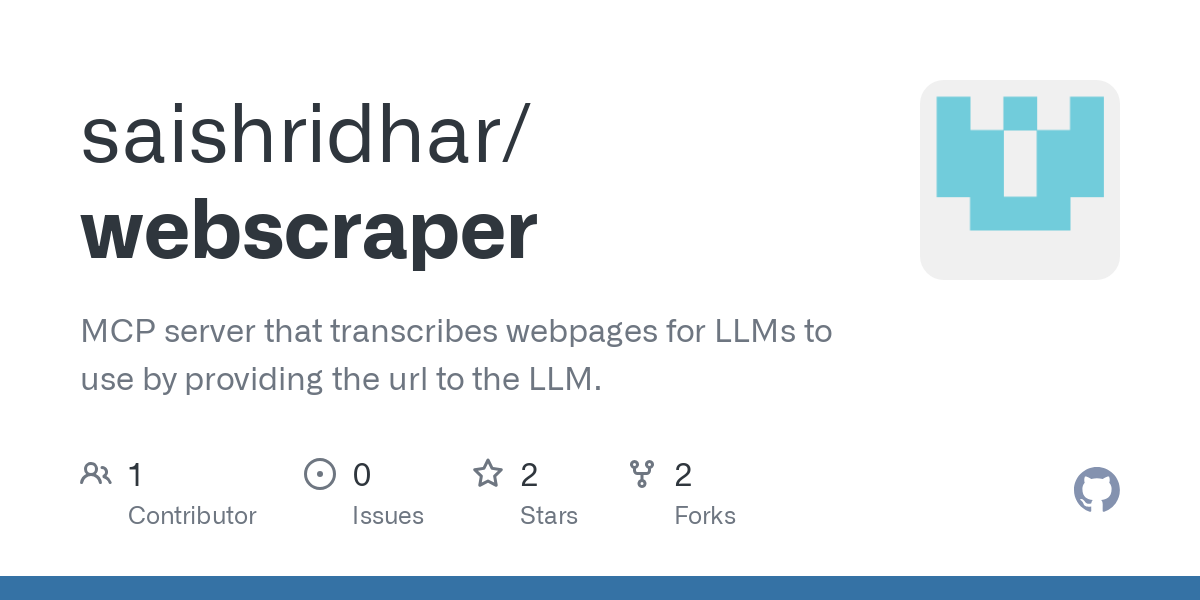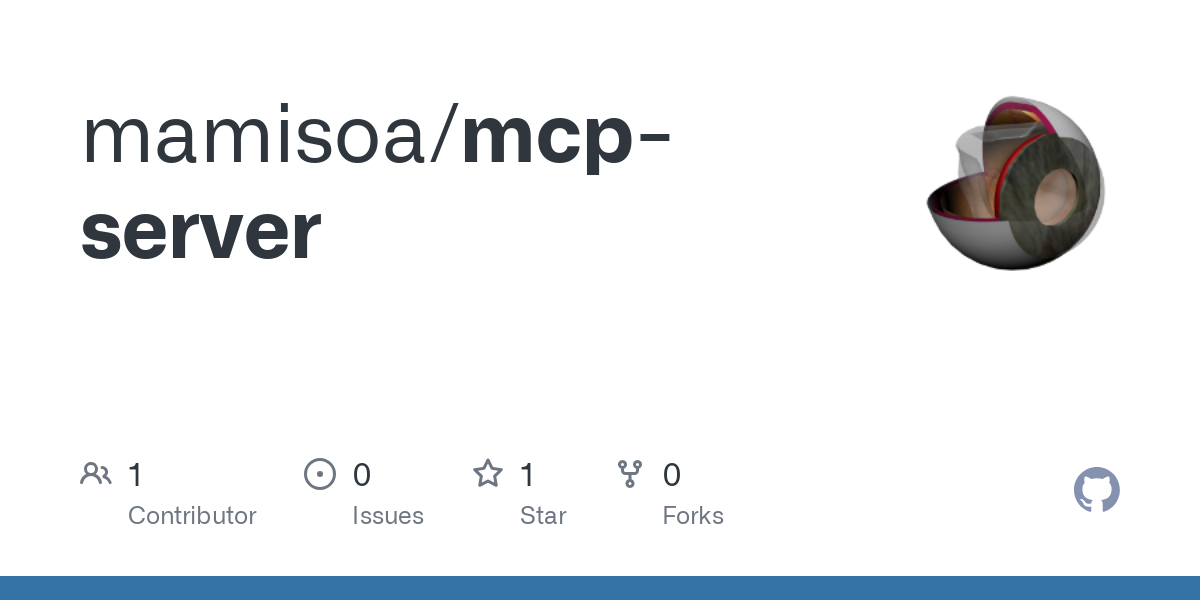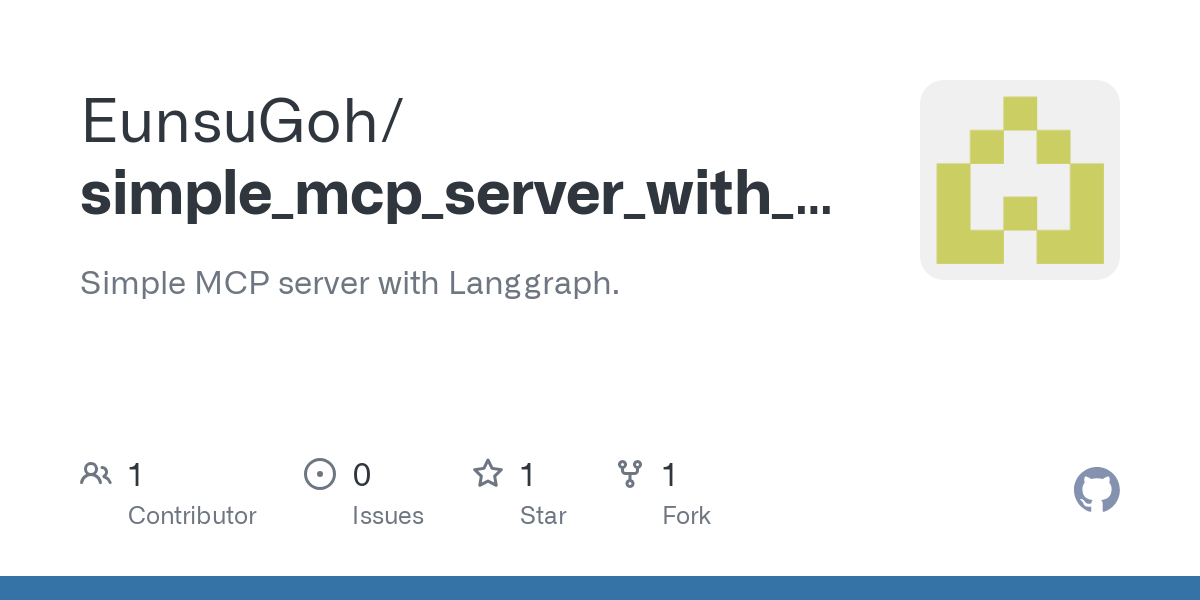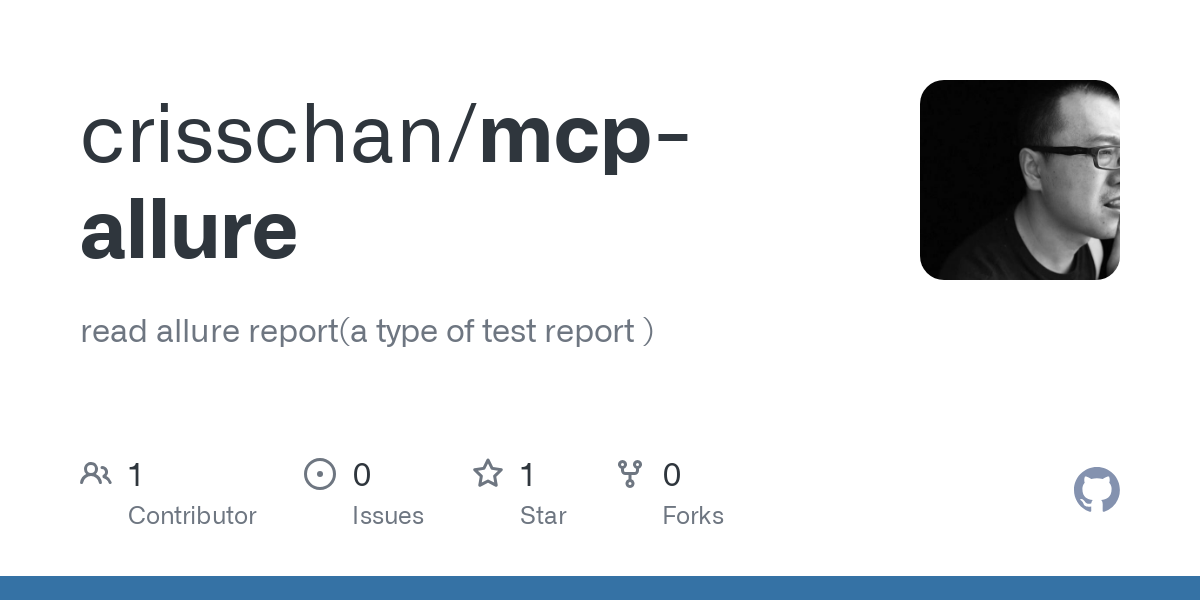All MCP Servers Complete list of MCP server implementations, sorted by stars
This repository hosts Model Context Protocol (MCP) server configurations for Cursor AI, enabling seamless integration with PostgreSQL databases and Obsidian.md notes. The PostgreSQL MCP server offers tools for database analysis, schema management, data migration, and performance monitoring. The Obsidian MCP server allows AI-driven interaction with Obsidian vaults, enabling search, read, and write operations on notes. These integrations enhance productivity by automating complex database tasks and note management workflows.
MCP Server - Image is a Model Context Protocol (MCP) server designed for enterprise-grade image handling. It fetches and processes images from URLs, local file paths, and numpy arrays, returning them as base64-encoded strings with proper MIME types. The server includes features like automatic compression for large images, parallel processing, and comprehensive error handling, making it ideal for AI applications, web services, and data processing pipelines.
This repository provides instructions for setting up AI chat capabilities with Android Studio, allowing developers to interact with their code and projects using natural language. By connecting Android Studio to an AI chat interface through the MCP Server plugin, developers can ask questions about their Android code, request code modifications, get explanations of Android-specific concepts, generate new code components, and debug issues in Android applications.
This project integrates AI with Kubernetes management, enabling users to perform real-time diagnostics, resource monitoring, and smart log analysis through natural language queries. It simplifies Kubernetes management by providing a conversational AI interface, offering a modern alternative to traditional command-line tools. The system includes modules for agent-based analysis, MCP server integration, and Kubernetes tooling for cluster management.
This MCP server integrates with a voice agent to manage music playback. It supports functionalities like playing, pausing, resuming, and stopping music. The server uses the Pygame library for audio playback and fetches music data from an external API. It is designed to be used in conjunction with an MCP-based voice assistant to provide seamless music control.
MCP-Grep is a server implementation that provides grep functionality via the Model Context Protocol (MCP). It allows MCP-compatible clients to search for patterns in files using regular expressions, with support for common grep options such as case-insensitive matching, context lines, and recursive directory searching. The server also provides information about the system grep binary, including its path and version.
This project serves as an orchestration layer between users and various Model Control Protocol (MCP) servers and tools. It analyzes user requests, determines the appropriate tools needed, and coordinates their execution to fulfill the request. Key features include request analysis, tool discovery, orchestration, and tool recommendation.
This project is a Go implementation of the Model Context Protocol (MCP), designed to enable seamless integration between LLM applications and external data sources and tools. It is based on github.com/mark3labs/mcp-filesystem-server and serves as a learning project for github.com/metoro-io/mcp-golang. The server can be installed and configured to work with tools like Claude Desktop, allowing access to specified directories.
This server allows for the execution of stdio MCP servers over the network. It takes a list of installable MCP server references, such as 'github:v-3/discordmcp', and their respective environments, then boots up and serves these servers over HTTP.
This MCP server provides seamless integration between GitHub and Cursor IDE, enabling users to create and manage repositories via a RESTful API. It includes features like secure token-based authentication, rate limiting, error handling, and detailed logging. The server simplifies repository management and enhances productivity for developers using Cursor IDE.
This MCP server provides network control and management capabilities through the POX SDN controller. It enables Python-based network programming, OpenFlow device management, and automated network analysis. It includes dynamic resources for network configuration and real-time topology views, specialized prompts for controller management, and tools for datapath and flow management. Ideal for educational environments, network prototyping, and SDN research.
This MCP server is designed to enhance the capabilities of large language models (LLMs) like Claude by transcribing content from webpages, YouTube videos, and PDFs. It allows users to provide URLs, which the server then processes to extract text content, making it accessible for LLMs to analyze and respond to user queries. The server includes tools for extracting webpage content, YouTube transcripts, and converting PDFs to markdown text.
This project provides the configuration and dependencies necessary to set up and run the Airtable Model Context Protocol (MCP) server. It enables interaction with Airtable bases through Cursor, allowing users to list bases and tables, search and retrieve records, and create or update records. The server is configured using a specific JSON file and environment variables.
The MCP DateTime Server is designed to enhance the Cursor IDE with precise datetime functionality. It supports accurate timestamp generation, automated changelog creation, and version control integration. This tool is particularly useful for maintaining documentation, tracking modifications, and generating audit trails with precise timestamps.
This project provides a simple MCP (Model Context Protocol) server enhanced with Langgraph, designed to support ChatGPT-like applications. It includes multiple server-client configurations, enabling seamless integration and communication between components. The project is built using Python 3.11 and offers a modular approach to building AI-driven conversational systems.
MCP-Allure is a MCP server designed to convert Allure test reports into formats optimized for Large Language Models (LLMs). It addresses the inefficiencies of traditional test reporting by enabling AI models to better understand, analyze, and provide insights about test results. Key features include efficient conversion, optimization for AI consumption, and high accuracy, facilitating tasks like test summarization, failure pattern identification, and automated documentation generation.
The Rust Docs MCP Server is an implementation of the Model Context Protocol (MCP) that enables AI tools to access Rust documentation from docs.rs. It supports searching for crates, retrieving documentation, type information, feature flags, version numbers, and source code for specific items. This server is designed to integrate seamlessly with MCP clients, offering a robust solution for developers and AI systems working with Rust.
This repository provides a quick-start template for developing your own MCP (Model Context Protocol) server, enabling AI systems to access and utilize your tools and resources. It includes essential setup files and configuration for TypeScript-based development, along with debugging and build scripts to streamline the development process. The template is designed to help developers quickly get started with MCP server implementation.


